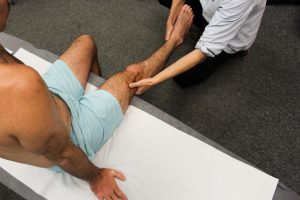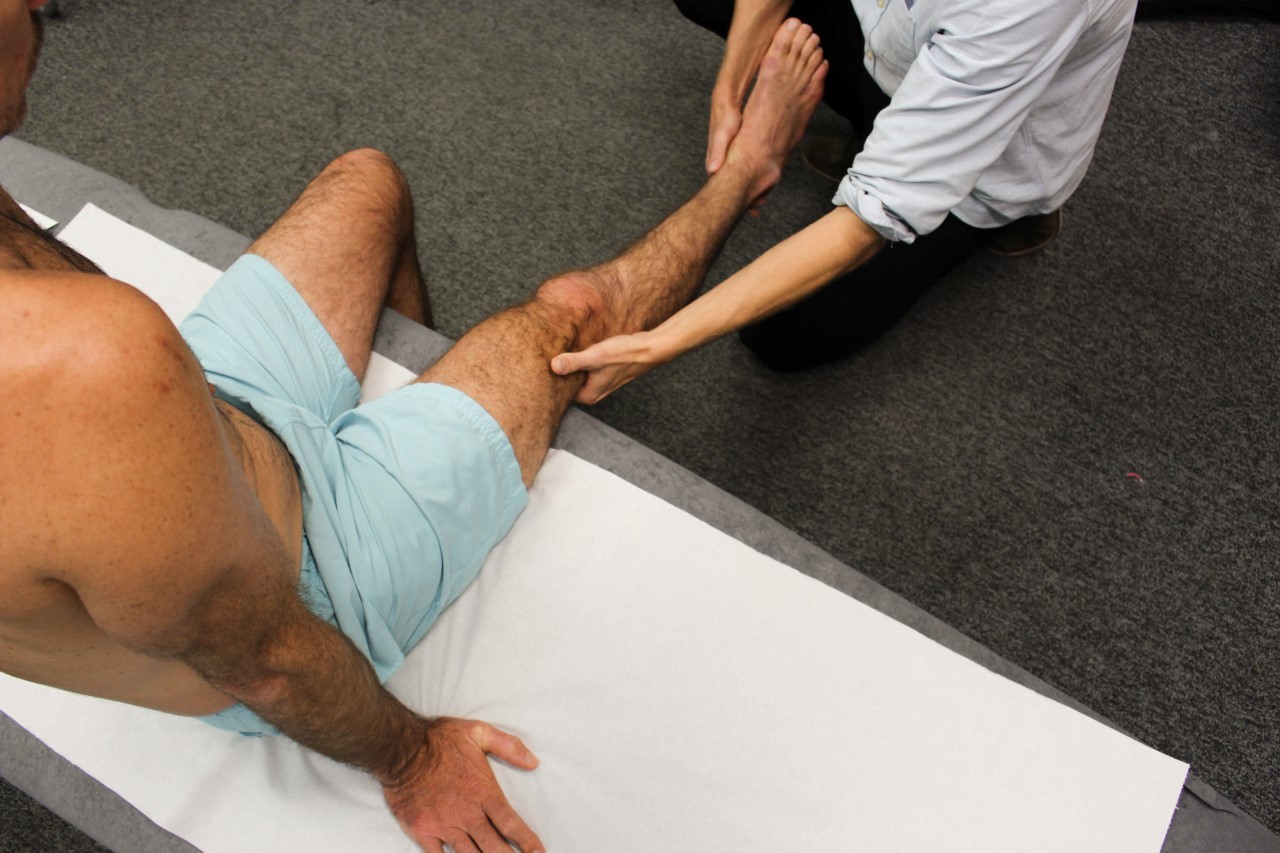
Anterior cruciate ligament
Your knee you has two main stabilizing ligaments. The main one of which is the Anterior Cruciate Ligament (ACL). ACL injuries usually occur from a hard step or a twisting of the knee whilst it is planted. It can also occur from an awkward fall, or impact to the side of the knee (being tackled).
An ACL can be a minor sprain or a higher grade injury where the ligament is partially or completely torn. A low grade sprain will likely heal but should have proper rehab to prevent reinjury and maintain knee stability. A partial or full tear will result in knee instability. These injuries do not heal well due to this area of the body having a poor blood supply. If you previously led an active lifestyle, it is recommended that you have this ligament repaired surgically.
So what happens after I’ve torn my ACL?
After you are diagnosed with an ACL tear (an MRI is the most accurate imaging technique for diagnosis), your physiotherapist and doctor will determine whether surgery is the right option for you.
If so, your surgeon will further evaluate your situation by considering other factors, including:
- If you have other injuries in the knee (e.g. a meniscal tear) in conjunction with an ACL tear,
- Your age, and
- You normal activity level
If you have an ACL surgery performed with arthroscopic techniques, there is a high chance of success.
You should try to begin rehabilitation to restore knee strength and range of motion within days of your injury and prior to surgery. This ‘prehab’ will make the process after surgery easier. Also, it will increase your likelihood of a successful return to full function.
You will spend approximately 9-10 months of rehabilitation to return to full activity or sport following surgery. A high-quality rehab program guided by an expert will give you the best chance to return to the activities you love.
 What is the recovery process after Surgery?
What is the recovery process after Surgery?
During your 9-10 months of physiotherapy rehabilitation, you can expect your progress to be broken down into different phases, each with their own set of treatments and goals to achieve before moving on. If you complete all five phases and work through the progressive goals of rehab, you will improve your functional outcome and lower your risk of reinjury.
You can have a read of the five phases of ACL recovery below:
Phase 1 – Early Recovery (Weeks 1 and 2)
- Treating physiotherapists will reduce pain and swelling with therapeutic techniques
- Gentle muscle activation exercises
- You will regain knee full extension range of motion
- Patients can expect to return to weight bearing on the repaired knee
- If successful, you will wean off crutches and normalize gait
Phase 2 – Basic Strength and Stability (Week 2-8)
- You will restore full range flexion and extension of the knee
- Managing physiotherapists will progressively load quads and hamstring muscle groups
- Practice control of the knee, hip, and ankle with proprioception exercises
Phase 3 – Intermediate Strength and Stability (Months 2-4)
- Continue to load the knee through full range, focus on quads and hamstring exercises, but also targeting muscles in the hips and lower leg
- Increased difficulty of balance exercises
- Low level plyometrics (light hopping/landing exercises)
- Near end of phase begin straight line jogging/running
Phase 4 – Prepare for Sport/Activity (Month 4-8)
- Running – including endurance, sprints and change of direction – may be included in your rehab program.
- Your physiotherapist may get you to perform advanced plyometrics and change of direction drills
- A high-quality rehab program will also include sport/activity specific tasks to regain confidence in the injured leg
- Patients should make a personal goal for leg strength to be at least 95% of non injured leg
Final Phase – Return to Sport/Activity – (Month 8-10)
- You will be able to engage in full training sessions for sport. You won’t have any more restrictions for physical tasks at work.
- Continue to monitor for knee symptoms/swelling with the increase in load/intensity for at least one month.
- Lastly, you will be able to return to sporting competition matches.
If you are still interested in learning more about ACL injury and recovery, you can check out this journal article.
Thanks for reading and we hope this helps on your journey after an ACL injury.
If you need more assistance, call us on (02) 9267 3775 or click here to book an appointment.

